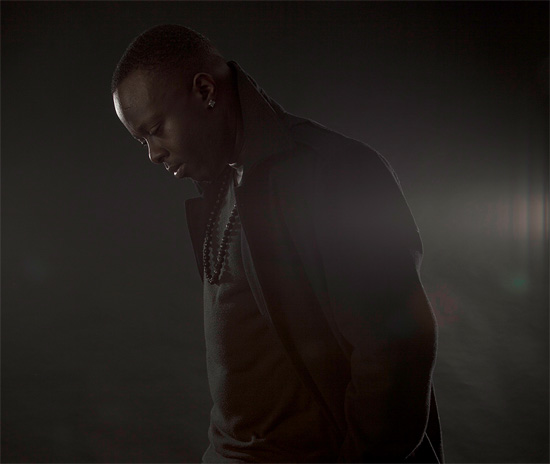Terror Danjah’s beats disorient, disturb and delight in equal measure. Perhaps the most virtuosic of grime’s early producers, his tracks are kaleidoscopic whirls of continually shifting colour, texture and sub-bass pressure, which send percussive and melodic fragments ricocheting around the mix to ambush listeners from all sides. Unlike the relatively simple, blocky construction of many grime instrumentals, Terror’s tracks often seem to have been spun from quicksilver and drifts of translucent vapour: beats are slippery and difficult to predict, each drum hit splintering outwards into a series of secondary fragments; melodies – what melodies! – arise from the interactions of many much smaller slivers of synth.
Having cut his teeth in jungle and drum & bass, it’s easy to hear Terror’s work as an evolutionary step onward from those styles, blending their penchant for perpetual motion with the slinky melodies and pop nous of late 90s/early 00s R&B. It’s telling that in this interview, discussing 13 of his favourite albums, he cites Timbaland and Roni Size as among his main influences, and discusses his personal musical history in terms of the interweaving of sounds from London sound system culture ("the tapestry of my upbringing," as he puts it) and US hip-hop and R&B. Indeed, he was the central figure in the small-but-potent R&G movement in the middle of last decade, which found UK grime producers using 140bpm post-garage beats as the basis for vocal-led songs rather than MC-driven tracks – Terror’s ‘So Sure’, vocaled by Sadie Ama, is a glorious British pop song, and in another world 2010’s ‘Full Attention’, voiced by Ruby Lee Ryder, would have taken up an extended residency somewhere in the upper reaches of the charts.
2009’s Gremlinz, a Planet Mu retrospective of much of his earlier instrumentals (mostly released post-2003 via his early label Aftershock), is a great place to start with his music – listen to it on headphones and his breathtaking ear for spatial arrangement is revealed in its full majesty. Since that compilation’s release he’s experienced a marked jump in attention towards his work, and has released a pair of full-lengths via Hyperdub – 2010’s Undeniable and last year’s excellent The Dark Crawler, the latter of which touched on all sides of his sound: instrumentals, R&G-styled vocal pop and fierce MC patter from Trim, Riko Dan, Kozzie and more.
In the period since Gremlinz, he has been at the forefront of a resurgence of interest in the club-centred, instrumental form of the genre, after several years where attention towards grime had waned. Elijah & Skilliam’s Butterz label has been at the forefront of that development – now on its twelfth release, its debut 12" was Terror’s Bipolar EP in 2010. He had first met Elijah several years earlier, and the two had been discussing ideas about the future of grime for a while before the latter suggested that he wanted to start releasing grime on wax again.
"He just turned around and said ‘I want to start a label. What do I do? Where do I go? And I want [the first release] to be one of yours’," Terror recalls. "I was laughing, like, ‘You want to put out vinyl in this day and age? Are you mad? What’s this crazy idea?’ But you know what, if you wanna do it, I’ll back it. And then here we are, from the dances at Cable, to playing around the world, and people starting to accept grime as a serious genre again. It was almost like a swearword if you said grime a few years ago, it was embarrassing. Now you can say grime and everyone gets excited."
Indeed, Butterz and Terror’s label Hardrive regularly host nights in London, and a new generation of producers raised on the early incarnations of grime are providing the genre with creative shots in the arm. Ninja Tune have announced the upcoming release of a 2CD compilation, Grime 2.0, collecting together music from old and new guard alike. And this week Terror’s Hardrive label release Hardrive Presents Hardwired, a comprehensive and excellent compilation pairing tracks from the label’s back catalogue with a host of unreleased material, from producers including Champion, Swindle, D.O.K, Zed Bias, Terror himself, Hyperdub boss Kode9 and Joker. "Filling out the dances with between 800 and 1000 people at Cable, that’s testament to what we’ve been doing," reflects Terror. "’Cause if you’d have stepped up to us in 2007, we’d have loved that dream, but to see it living itself out is amazing in itself."
Click the image below to begin browsing through Terror Danjah’s favourite albums


